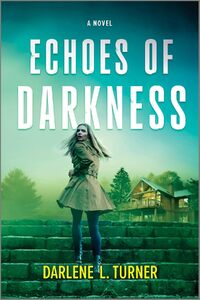 ECHOES OF DARKNESS |
|

Vampires! Margaritas! Mayhem!
Casa Dracula #1 What's a girl to do when she's hidden away at the home of sophisticated vampires and her ex-boy friend wants to drive a stake through her heart? Latina Ivy League grad Milagro de Los Santos can't find her place in the world or a man to go with it. Then one night, at a book party for her pretentious ex-boyfriend, she meets an oddly attractive man. After she is bitten while kissing him, she falls ill and is squirreled away to his family's estate to recover. Vampires don't exist in this day and age -- or do they? As Milagro falls for a fabulously inappropriate man, she finds herself caught between a family who has accepted her as one of their own and a shady organization that refuses to let the undead live and love in peace. Excerpt One the intolerable lightness of being silly If I had been a rational human being, I would have had a normal job and I never would have gotten involved with any of them. But I was not a rational human being. I was and remain a square peg in a round world. You would think that a girl with a degree from a Fancy University would have been hired muy rápido by some big corporation anxious to ladle on numerous perks and a generous salary. Sadly, my F.U. education did not lead me directly into wealth and fame. All my attempts to become a worthwhile cog in the capitalist machine were met with rejection, the type that has driven many other creative souls to despair and Great Art. Here are the results of my attempts. No response at all from the many newspapers that should have been interested in a columnist who focused on bargain gardens. A soul-killing stint at an ad agency that concluded when the art director read my sardonic copy for fortified wine. A happy stretch writing a newsletter for a nutritional supplements company that ended abruptly when the FDA raided our warehouse. Miscellaneous temporary jobs, each more wretchedly depressing than its predecessor. Also two entry-level marketing jobs terminated after "improprieties," which were not my fault. Okay, my mother Regina would have said that they were my fault. My mother Regina thought that anyone with breasts as vulgar as my own induced otherwise upstanding citizens to behave badly. My mother Regina had neat, tasteful chichis. When she bothered to look at me, an expression of dismay almost came over her immaculately made-up face. "Almost," because medical procedures rendered her incapable of normal facial expressions. My mother Regina believed my father had wasted his hard-earned cash sending me to F.U. because I was not a serious person. My mother Regina thought thusly because I always referred to her as "my mother Regina" and because I had not dedicated myself wholeheartedly to the reformation and improvement of my garish carcass. "You have wasted your father's money," she said, ignoring the fact that I had worked, taken out loans, and earned scholarships in order to attend F.U. I now lived in a windowless basement flat of a nice house in a nice neighborhood of the City. My rent was low because I maintained the garden and my landlord found my bosom enchanting. While he never exactly said, "I am captivated by your enchanting bosom," he did stare a lot and that's practically the same thing. The dark flat had a cement floor, a dinky bathroom, and a gloomy kitchenette. At night, I heard scrabbling in the walls, which, I suspected, was caused by fearsome Norway rats. My income was earned by toiling as a reading consultant to executives and society dames who were book club averse. I garnered extra cash by filling in at a local nursery. My jobs were irregular, sometimes taking only ten hours of my week and other times taking fifty, but I didn't mind. It was better than sitting in an office trying to keep my eyes from bleeding while copyediting training manuals. I worked diligently on my novel every single possible second that was available after going out, thrift store shopping, spending quality time with my friends, and finding gyms that offered the first month free. In addition to this exhausting work/art/life regime, I tried to improve the world by writing letters to political leaders about Important Issues. I wasn't picky about the issues. The world was full of pain and injustice, and writing the letters helped me keep proper perspective. My friend Nancy had come up with the reading consultant idea because she knew how much I liked recommending books to friends. She had given me business cards on lovely ecru stock with "Bennett" hyphenated to my last name. Underneath was "Reading Consultant," with my phone number. "Why the Bennett hyphenate?" I had asked. "Like Eliza Bennett, you have a fine posterior," she had said. Nancy had been my F.U. roommate freshman year. Despite her unfortunate WASPier-than-thou perkiness, we had become friends. "Eliza had fine eyes, not a fine fanny, you cultural barbarian. You never even finished Pride and Prejudice. I wrote that paper for you." "And now I am showing my tremendous appreciation for your scholarship. Also this gives you credibility with Anglophile aspirants, my little brown amiga." This is how we talked to each other. We thought being silly was the height of delightfulness. Speaking of which, my name was outlandish enough without the Bennett hyphenate, but I took the cards and thanked her. I filled my days, but there were times when I awoke in the middle of the night, listened to the scratching in the walls, and felt afraid and lonely. I missed rooming with Nancy and hearing her gentle snoring at night. Nancy did not miss me; she had moved into her boyfriend Todd's condo and was a happy camper. People can be divided into two distinct groups: those who desire constant companionship and those who prefer calm solitude. The unnecessary crowding in The Brady Bunch repelled me, but I longed for an Eliza Bennettish existence: a house filled with family and friends, the agreeable conversation of a kind and compassionate sister, and the promise of dances and engagements. Instead I had my mother Regina, rats in the walls, and boyfriends who were like beach reads, momentary fun but nothing you'd ever bother to buy in hardcover. I worried that perhaps I, as a nonserious person, was only a beach read as well. I had just reread Middlemarch, and I had a deep and sincere desire to be a deep and sincere character. Nancy had connected me with most of my reading clients, but one of my former beach reads, a Russian artist named Vladimir, introduced me to Kathleen Baker. Kathleen was one of the Bakers, known for their famous sourdough bread: "Did a Real Baker Make Your Sour Round?" Kathleen was fiftyish and very chic. Like my other clients, Kathleen wanted me more for company than guidance. Sometimes she patted my head as if I was a pet and I half expected her to toss biscuits to me and say, "Good girl, catch!" I had to constantly steer the conversation back to her reading and remind her that we had a scholarly purpose. In her enthusiasm for literature, Kathleen decided to host a reception for hot new writer Sebastian Beckett-Witherspoon. She was absolutely thrilled when he accepted. I know because she said, "I am absolutely thrilled that Sebastian Beckett-Witherspoon has accepted my invitation to hold a reception for him. Are you familiar with his work?" In a word, yes. In three words, all too familiar. In a few more words, why wouldn't Sebastian B-W die, die, die a grisly and humiliating death? I pulled my lips into a simian grimace that I hoped Kathleen would interpret as a smile. I told her that we had met at F.U. "Marvelous!" she said. "Of course, you will be at my reception. I'm sure he'll be delighted to see you again." "Perhaps you overestimate my delightfulness," I demurred. I had taken up demurring like mad. I thought demurring was the last word in refinement, right behind murmuring, deferring, and suggesting. "Don't be a silly goose," Kathleen said. "This will be a good opportunity for you to meet other literary people." So here I was at Kathleen's soirée for Sebastian Beckett-Witherspoon, the highlight of a lackluster season of morose poets, grimy novelists, and patronizing essayists. Kathleen had a magpie's fascination with all things shiny, so the room gleamed with polished floors, glittering mirrors, and lustrous furniture. I was afraid that if I moved too quickly, I'd skitter and crash down on my sincere and serious colita. I wore a simple linen shirt-dress that I'd bought at a thrift store, cream sandals, and fake pearls. My straight black hair was pulled back into a low, Grace Kellyish ponytail, and I'd used a light hand with my makeup because I wanted to look good without looking like a good time. I did what I always do at gatherings: an initial scan of the room for people of hue. One Asian man in a pinstripe suit, an African-American couple in earth-toned natural fibers, and a mixed-race woman. No obvious Latinos except for me and one waiter. I sent him the silent message: "Right on, mi hermano. Power to the people." At a real party or in a club, I knew what to do or say, but here I felt as awkward as I had my first day at F.U., hauling cardboard boxes to my dorm while almost Nordic-looking people strode confidently forward with matching luggage. The other guests seemed to know each other, but their eyes slid over me and moved on to others more important. I was all too aware of the ecru business cards in my small pocketbook. Sometimes you seek guidance in nineteenth-century heroines and other times you find inspiration in nineteenth-century hucksters, such as P. T. Barnum and his Feejee Mermaid. If Barnum could shamelessly peddle a monkey head sewn on a fish body as a sea nymph, then surely I could try to promote my novel to an agent or publisher. Then I saw Sebastian B-W, scion of one of the most powerful families in the country. He stood by a window, and most people would have thought it was merely a lucky accident that a shaft of light from the setting sun glowed on his golden hair. He smiled and nodded as he talked to an older man. Sebastian's skin was evenly tanned with a slight, marvelous blush of pink on his cheeks. His teeth were as pearly as ever, and he seemed to have aged very little over the last several years. He was just over six foot, slim and graceful in a navy jacket and a soft blue shirt that brought out the sea-color of his eyes. I had thought, la, la, la, that I would come here and Sebastian would see that I had moved beyond the past, that I had matured into an urban and urbane woman, a fellow scribe, and that we could have a civil, even friendly association. But just looking at him made me panic like a hemophiliac in a pin factory. "Yummy," said a voice nearby. "What?" I was startled and turned to see a small, wiry redheaded waiter with a tray of petite pastries. "Would you like something yummy?" The waiter held the tray toward me and winked. He was as gay and pleasing as a posy of Johnny-jump-ups. He had a wide smile and big green eyes to go with his shock of red hair. "I always enjoy something yummy," I replied suggestively, unable to stop my chronic flirting mechanism. Nancy said that my need to flirt was directly linked to the lack of a strong paternal figure in my life and the dominating presence of an unloving mother. I thought it was because boys were so dang pretty. "I certainly didn't mean him," the waiter said, tilting his head toward Sebastian. "That novel was offensive." Of course I had read Sebastian's novel, looking for secret clues to his character in every word. "I thought I was the only one who didn't like it." "Please, girlfriend, it was pretentious as hell," said the waiter. "His school churns them out like that." He saw my expression and said, "What's the matter?" When I admitted that I had gone to F.U., he grinned and said, "Well, present company excepted. You aren't involved with him, are you?" "Me, involved with him? Ha-ha, you make the funny," I said flippantly. "Does he turn your engine?" "Not my type. I like them less evil incarnate," he said. "And also hairier." Before we could continue our fascinating conversation, the headwaiter angrily gestured for my new friend to circulate. It was time for me to circulate, too, and the first person I had to talk to was the guest of horror. My heart was pounding faster than a flamenco dancer's feet. I grabbed a flute of champagne off a tray, downed it quickly, and grabbed another. Moving through the crowd, I noticed that everyone was surreptitiously peeking at Sebastian, all awaiting their chance to have a clever or insightful exchange so they could relate the story at their next dinner party. He caught sight of me and his smile froze. I tried to calm myself as I walked to his side. He continued his conversation with the older man. "Naturally," he said, "I only write about perversions to expose them to the condemnation they deserve. I am not a voyeur, not one who is titillated by the steamy, I mean, seamy underbelly." Seamy underbelly? I guess that was my cue. "Hello, Sebastian." He turned his head fractionally toward me. "Hullo," he said tersely without meeting my eyes. "Hullo? Are we suddenly British? Lord love a duck." I didn't know what that expression meant, but I'd always wanted to use it. "In America, we say 'hello' with the accent on 'hell.'" The older fellow said to Sebastian, "I enjoyed talking with you," then edged just far enough away to eavesdrop. Sebastian held out his hand and actually said, "I'm Sebastian Beckett-Witherspoon. And you are . . . ?" He won tonight's P. T. Barnum award for even trying this. I wanted to stab him repeatedly with a tiny cocktail fork until he leaked all over like a sieve. "If you don't cut it out, Sebastian, I swear I'll make your evening here one of undiluted misery." He blanched and spoke in a low whisper. "Undiluted misery! You have no idea how much you've caused me. What are you doing here?" "I'm a very close and special friend of Kathleen's. In fact, I'm her literary consultant," I said, trying to sound important. Sebastian was confused. "You mean you suggested that she have this reception?" "Oh, be real," I snapped. "Did I like your incest-fest novel? I did not." It occurred to me that this was not the most politic thing to say if I wished to resuscitate our association. "You are criticizing me? You, who write political horrors!" He snorted. "Blood and gore and monsters and tedious left-wing diatribes. Utter swill." Why were my feelings hurt when I had no respect for him? "You said you liked my stories," I said before I could stop myself. I pushed away a memory of the early weeks of our acquaintance and how I felt seeing him strolling across campus toward me, smiling as the wind blew back his hair. "I may have said it, but I didn't mean it." "Did you ever mean anything you told me, Sebastian?" It was as if no time had passed since our last encounter: I was flooded by unnameable emotion, wanting to cry and shout and say all the things I'd never had a chance to tell him. I hadn't done anything wrong, yet he had cast me out of his world. What was worse, he'd done it when I was taking a course in Milton, so I'd become obsessed with finding the answer to my misery in Paradise Lost. I'd received an A on my term paper, but my time would have been better spent getting advice from Cosmopolitan. "Why are you here, Milagro?" The whole history of our relationship was in the knowing way he said my name. It felt too intimate, as if he knew too many of my secrets. "I'm here to make contacts. Introduce me to your agent or your publisher." "You are still out of your tiny little mind." Before I could retort, wheedle, or threaten, Kathleen began speaking on the other side of the room. Sebastian moved away so fast, it was like he had been teleported. "Your feminine wiles leave something to be desired," said a deep voice so close to me I felt warm breath on my neck. I stepped away reflexively. Beside me was a somewhat fabulous man in a strange suit. Now, Nancy would tell you that I often see fabulous men, that I think more men are fabulous than not, and that I am overly generous in bestowing the description of "fabulous" on a man. Her comments have caused me to doubt my ability to judge fabulousness, and I was feeling particularly insecure right now. I focused on this man just to center myself. Rich brown hair brushed straight back, gray eyes, a strong nose, pale, perfect skin, nice cheekbones, and a lovely, rosy curved mouth. He was medium height, lean and muscled. He smiled crookedly, which either added or detracted from his charm, depending upon your point of view. "Aren't you going to say anything?" he asked. "As you have noted, my feminine wiles have eluded me this evening." I was still trying to figure out what was wrong with his suit. It was well made, but the cut was about fifty years out of style, give or take a century. And the smell . . . under the light, clean scent of a good aftershave was cedar. My guess was that his suit had been hanging in a closet for ages. His smoke-colored eyes took a leisurely journey up and down my body, causing my trampy internal gears to shift of their own volition. "Perhaps I misjudged," he said. His voice was as sexy as a funky bass line on the dance floor. My recent encounter with Sebastian had made my nerves buzz, and I had no idea if this man was flirting with me or insulting me. "So kind of you to offer your criticism gratis to strangers," was my utterly pathetic retort. Who said "gratis"? Pretty soon I'd be uncontrollably uttering "pro forma," "ipso facto," and "carpe diem" in conversation ad nauseam. As a tactical maneuver, I moved through the rapt audience to the other side of the room before I said anything else idiotic. Sebastian was now addressing the guests, droning the usual glad to be here, happy so many devoted fans, et cetera, and opening a copy of his novel so that he could read a chapter aloud. Had I ever enjoyed his writing or had I been so flattered by his attention that I convinced myself I liked this drivel? The other guests seemed enthralled by Sebastian's stream of blather. He used words like "luminescent," "tumescent," "iridescent," and "transcendent." Perhaps they handed out New Yorker vocabulary lists at every graduate writing program in the country. I wouldn't know. My mother Regina had convinced my father that liposuction on her "problem spots" was more critical than helping me through grad school. Listening to Sebastian now, I began to think that maybe she'd had a point. The carrot-topped waiter returned and whispered, "Warm chèvre with tapenade," as he offered his tray. "No thanks," I said. The waiter gracelessly deposited his tray on a side table. "You seem to be attracting the attention of some of the gentlemen here," he said chattily. I wasn't surprised at his unprofessional interest in me. I have always had a symbiotic relationship with the waiter species. "If by that you mean I imposed my company upon the guest of honor, then I guess, yes." "No offense, but these guys aren't your type. I know what I'm talking about." Coming from someone else, his statement would have sounded like a West Side Story stick-to-your-own-kind, but I assumed he was offering his assessment of sexual orientation. I wasn't going to insult his obviously flawed gaydar, so I said, "Thanks. I'll take that into consideration." The waiter winked at me, then slipped away. I wondered why he left the tray of hors d'oeuvres. He was a nice guy, but a very bad waiter. Sebastian finally concluded his yammering. There was hearty applause, and then I saw the fabulous man smiling in my direction. Sauntering to me, he said, "This joint is a bust. Let's scram." Though I had come to the party to hawk my wares, this was not what I had in mind. But the room seemed too close and too crowded. I was still fantasizing about stabbing Sebastian, and I thought it was a good idea to get away before I did something legally prosecutable in front of numerous witnesses. "I don't suppose you're connected to the publishing world?" "Why else would I be here? You're a writer?" His lopsided smile inspired parts of my body to attempt mutiny and throw themselves at him. "We'll go somewhere quieter where we can talk about your writing. I can tell you are an interesting writer, unique." "Excuse me, but exactly how dumb do you think I am?" Men seemed to think there was an inverse relationship between bouncy bazooms and brainpower. His laugh carried to his eyes and he said, "That did sound like a bad line, didn't it? But I'm right, aren't I?" "Every writer wants to think that she's unique and interesting. That doesn't mean it's true." I hated the idea that Sebastian had out-P. T. Barnumed me tonight. Would Barnum have rejected a potential investor? "You haven't introduced yourself," I murmured, as if I was a proper young lady. The fabulous man took my elbow and led me through the crowd. He escorted me down the marbled hallway, through the wood-paneled foyer, and when we were away from the chatter of the party, he said, "I am Oswaldo Krakatoa." His name was patently absurd. I was strongly tempted to question its veracity. "I'm Milagro De Los Santos." Judging from his expression, I had just won the ridiculous-name contest. "Miracle of the saints?" "It's a sad little story. I'll tell you sometime when I'm feeling particularly full of self-pity. You can call me Mil." "All right, Mil." We stepped outside. The fog had rolled in and the damp Pacific air was refreshing after the packed, overperfumed room. My bus stop was far down the street. My options were: talk to this handsome fellow, track down my pals for a whine-and-wine session, or go home and cry a million tears because my business cards were still in my handbag and Sebastian had frazzled me to the utmost. A limousine pulled up and the driver stepped out, opening the passenger door. I wondered who the lucky bastard was. Yes, I knew every drug dealer and prom kid rented these, but those tiny bottles of liquor were so amusing. Oswaldo said, "I'm staying at the Hotel Croft. We could talk there in the bar." I loved the Sequoia Room at the Croft. They had silver bowls of salted cashews and the waitresses let you nurse one overpriced cocktail for hours while you listened to the pianist play Gershwin. It was one of the City's great old hotels, and I always liked to imagine the passionate trysts that took place there, the corrupt business deals, the after-theater dinners. "I'm not . . . ," I began, and then I saw Sebastian rushing out of Kathleen's house. He looked outraged and he was heading my way. "Sure, let's go, now." Oswaldo waved to the limo driver, who said, "Good evening, Doctor." Doctor? Perhaps he had a PhD. Personally, I felt that if someone couldn't prescribe entertaining pharmaceuticals, he shouldn't use the title of doctor socially. I slid into the backseat of the limo and the driver closed the door. Sebastian was in such a rush to get to me that he stumbled on the curb and fell. Through the dark window, I could see his features contort, more in rage than in pain. What in the world was the matter with him? He should have been relieved to see me go. My escort leaned forward and said, "The Croft, please." I liked that he said "please" to the driver. Turning his clear gaze on me, Oswaldo asked, "Are you a colleague of Mr. Beckett-Witherspoon?" I supposed that technically I had been his colleague. College, colleague, and all that. "I was, but we had aesthetic differences." He said, "Tell me about your writing," when I was busy noticing how nice his knee looked in his ancient trousers. Why had I never noticed men's knees before? I was amazed at how quickly the torment from encountering Sebastian was dissipating in the company of an attractive knee. "Hmm?" I said cleverly. "Why don't you tell me about what you do?" I wanted to know what he did so I could decide whether to tell him about my novel or my short stories. "This and that," he answered. "Handle documents, read things, ensure they get to the right people." Was he an agent, an editor, or a mailman? "What genres do you prefer?" "Fiction, nonfiction, theology, philosophy," he said. "Prose, poetry." Well, that about covered everything from the Koran to dirty limericks. I wondered if I was being taken for a ride in more than one way. It didn't matter. At least I could grab a cab or a bus from the Croft. "Excuse me for asking," he said, "but how well do you know Beckett-Witherspoon?" I could tell this was a trick question. "How well do we know anyone? How well do you know him?" "Oh," said Oswaldo, "I know him more by reputation." "So, are you a real doctor?" I didn't think so. He looked too carefree. "The driver likes to make people feel important." He added, "I've often thought that I would like to be a veterinarian." And I would like to be the Princess of Mars. I didn't bother to make small talk the rest of the way, which left my mind vulnerable to totally unwarranted images of mad lovemaking in limos. I was so unevolved as a human being that I thought it was cool to get out of a limo in front of the Croft. One of the doormen recognized me and winked as he held open the heavy brass-'n'-glass door. "Just one drink," I murmured to Oswaldo. I needed just one drink before I could face going back to my dark and dismal abode. We crossed the cushy burgundy carpet to the entrance of the Sequoia Room, where we were assaulted by raucous voices raised loud over a hearty band. It was that traditional matrimonial celebration song, "YMCA." The concierge rose from behind his desk and glided to us. "I apologize, but we've had to move a private party from another room due to a damaged carpet. Perhaps you would like to relax in the Hamburg Room?" A bar had to be bad in multiple ways to earn my disfavor; the Hamburg Room was one of the City's few watering holes that achieved this classification. It was a dim, uncomfortable room decorated with truncheons, shields, and suits of armor. I had had a particularly unpleasant evening there after ingesting some hallucinogenic mushrooms purely for research purposes. (I was creating a character who returns to her shamanistic roots after discovering she can shape-shift into a mountain lion to avenge a polluting chemical plant.) I said, "I don't think so . . ." "Or if you like," said the concierge obligingly, "the Croft will send drinks to your suite, Doctor. Complimentary, of course." The odd doc turned to me. If Oswaldo had suggested drinks in his room, I would have said no. If he had tried to urge me or in any way lure me, I would have said absolutely not. But the offer had come from the concierge, so I said, "Fine." "What would you like?" Oswaldo asked. "Something tropical in a coconut with little parasols." "Send a pitcher," said Oswaldo. Ordering too much booze was not necessarily a mark against a man. Most of the published writers at F.U. were drunks. We silently rode the elevator to Oswaldo's upper-floor suite. He unlocked the door and held it open for me. Judging by the size of the rooms and the view of the City, he was either successful or profligate. The lights glimmered charmingly in the night. The sitting room was all coffee tones: mocha armchairs, an overstuffed espresso-covered sofa, thick latte-colored carpets, and the walls were a nice steamed milk shade. Okay, I'm making that up, but they were a creamy white. There were no obvious signs of literary business: no manuscripts on the desk, no books piled on the coffee table, no Post-its stuck to the walls. I dropped into the armchair closest to the door. "Are you really in publishing, Oswaldo?" "Not major publishing, but I've got a little publishing side business." "Answering personal ads is not considered publishing." He laughed. It was an honest, warm laugh from inside. It washed over me like spring rain and I relaxed and started laughing, too. "Really, I have been published," he insisted. "Articles and research papers." "Why the ruse?" " 'Ruse'? You have a strange vocabulary." "Books have always been my consolation." I said it mockingly although it was true. There was a discreet knock at the door. Oswaldo opened it and a waiter wheeled in a cart with a frosty pitcher and two drinks in coconuts with pink parasols and pineapple garnishes. They were so perfect I wanted to take a picture of them. When the waiter left, Oswaldo handed a coconut to me and sat on the sofa. I took a sip of the frozen concoction. It was sweet and fruity. Only an hour ago, I had felt out of place and insecure, but now I congratulated myself for my admirable sophistication, enjoying the attentions of a fabulous man in swanky digs. "I'm pretty sure this is what the Lost Generation drank," I said. "You haven't told me what you write about yet." Still stinging from Sebastian's criticism, I answered blithely, "Fiction, stories with political implications." Oswaldo leaned forward, looking at me intently. "Political thrillers, then? Like le Carré or Cruz Smith?" Although I had not read either of these authors, I doubted that their novels featured zombies. "Not quite. I use the supernatural to represent the manifestation of various life forces, good, evil, the unconscious, the id, et cetera." Now Oswaldo grinned broadly. He had a generous mouth, a sensual, facile mouth, and I found him more attractive by the second. "You mean horror stories?" he asked. "Do you believe in those things? Monsters, ghosts, vampires?" I didn't want to waste my time defending my writing to someone who preferred more conventional literary fiction, so I said, "I'm not superstitious, but myths do serve a purpose. They symbolize and explain fears and anxieties in a way that science cannot." "Do you think so?" he said. "What purpose does the Loch Ness monster serve?" Now he was teasing me. "Do you like Sebastian's latest novel? Because if you do, you may as well know now that my style is very different." "I would have guessed as much," Oswaldo said. "I was there because I was curious about his work. I've heard a great deal about him. I haven't had the chance to read his book yet." "The critics love it," I said, thereby not committing one way or another regarding Sebastian's work. "So they do," said Oswaldo. "He seems rather businesslike for an artist, so establishment. Is that how he always is?" "You're assuming that I know him well," I said. He sipped his drink. "Um, yes, I got that general impression." I suddenly had a shift in awareness. "I thought you invited me here because you were interested in me, my writing. But all you really want to know about is Sebastian." My breasts practically slumped in shame. I swallowed my drink quickly, feeling momentary brain freeze, which seemed appropriate for the situation. I would have bet Oswaldo was a heterosexual, but that dang waiter had been right. "That's the icing on the cake for this evening!" I stood up and grabbed my bag. The evening could yet be redeemed. I'd go to the lobby, phone my friends and find out where they would be tonight. "Ask Kathleen," I told him. "She knows where Sebastian's staying. A man of your means can surely schedule an appointment or an interview or a tryst or whatever it is that you want." Oswaldo jumped up. "No, no, that's . . ." He grabbed my arm. His lovely fingers were warm on my flesh. "I did want to know about him, but, you, there's something about you and I didn't expect to meet anyone who could make me feel . . ." I could have huffed, "What kind of girl do you think I am?" But the truth is that I'm the kind of girl who can be picked up by some fake doctor bozo in a weird suit at a posh party, go to his hotel suite, become insulted, and then realize that she's never been so attracted to anyone before. I'm the kind of girl who impulsively tugs him close and kisses him like there's no tomorrow. I felt as if there was no tomorrow and no yesterday and nothing but this moment and this moment and this moment. My need to touch him went beyond coconut drink-fueled desire. My mind shut down entirely and turned control over to my nervous system. I lost sense of where my body ended and his began. I felt an arm stroke a back, but could not tell if I was stroking his back or he was stroking mine. Our tongues slipped into each other's mouths, our legs tangled in an effort to meld our bodies. We pushed together carelessly, wildly, and crashed against the coffee table before tumbling to the carpet, his body beneath mine. I felt as if a door had opened and I'd stepped into light and open space. I felt truly happy in a way I had never felt before. It was like I had been living in black and white and suddenly I could see in color. I became aware of a warm mineral taste in my mouth and I broke away from Oswaldo. I put my fingers to my face and discovered that my lower lip had been cut. My fingers came away glistening with blood. Oswald's lip, too, had been cut in the fall. A gleaming red drop beaded at the corner of his mouth. "Milagro," Oswald said softly. He didn't pull me toward him or push me away or laugh about our clumsiness. He just stared at me with his smoky gray eyes, his chest rising with every slow breath, the red, red drop of blood exquisitely balanced on the edge of his pink lip and his creamy skin. I knew the dangers of exchanging body fluids, but an inexplicable compulsion rose in me. Irrationally, unreasonably, I didn't try to repress it. The caution I had always taken seemed insignificant compared with the desire that now enflamed me. I lowered my lips to Oswald's and put my injured mouth to his, tasting him, hungry for every drop, every part of him. He tasted like the ocean; he tasted like the earth; he tasted like the sky; he tasted like life itself. I heard him say, "No, we can't," and his argument convinced neither of us. He grabbed me tightly and rolled our bodies over until he was on top. Our hands were fumbling with each other's clothes and I became aware of a banging, a loud insistent banging, but it wasn't us, not yet, and then the door flew open and someone shouted, "Stop!" Turning to the door, I saw Sebastian, who looked furious. I was about to tell him to get lost, to go to hell, wondering why he had decided to bother me, when some tiny part of me became aware that I felt strangely disoriented. And while I wanted to stay with Oswaldo forever, the core of me that was Milagro De Los Santos, miracle of the saints, ordered me to get up, to grab my bag, to get away now before I lost all will and control. Shoving Sebastian aside, I rushed down the hall. I was aware of the men shouting at each other. Then the walls began to waver and the floor roiled under my feet. I stood still, thinking that it was an earthquake. None of the pictures on the walls fell, though, and the flowers were still in their vases. The elevator doors were open. I stumbled inside, punched the lobby button, and leaned against the mirrored wall. My mouth was red and my eyes were wild. I noticed that my dress was partially unbuttoned, but I didn't care. When the elevator doors opened, I nearly collapsed into the lobby. The redheaded waiter was standing there and he caught me. "Are you okay?" "No," I said, but I was thinking that it was an awfully big coincidence that the same dang waiter was in the Croft lobby. And that made me wonder how Sebastian had found me in the hotel room. Why were we all at the Croft? Was someone having an after-party for Kathleen's reception? Had I come here for an after-party? My thoughts were slipping and sliding around in my brain like eels. I couldn't hold on to any of them long enough to make sense out of the situation. "Come sit down here," the waiter said, and he helped me to an enormous ottoman by the entrance. It was scarlet, like Oswaldo's blood. I rubbed the dark leather with my thumb and licked at my lips, my tongue searching for a last drop. The waiter's deft fingers buttoned my dress to my neck. "Stay here and I'll take care of you. I have to do one thing. Stay here, okay?" I may have nodded or my head may have just dropped. "I'll be right back." He ran off and left me. Copyright ©2006 by Marta Acosta 
Our Past Week of Fresh Picks
She took on titans, battled generals, and changed the world as we know it…New York Times bestselling author Stephanie Dray returns with a Read More »
LIMITED FIRST PRINT RUN--ALL first edition copies will be signed by the author! Signed copies available only for a limited time and while supplies Read More »
It’s a thin line between love and love-hating. Katie Vaughn has been burned by love in the past—now she may Read More »
There are no rules this cruel summer…“I think we should see other people…” That one sentence unravels Samantha Parker&rsquo Read More »
THE DEATH MASK From #1 New York Times bestselling author Iris Johansen comes a new thriller starring Eve Duncan as she races against time to protect her beloved Read More »
Set in the art world of 1970s London, The English Masterpiece is a fast-paced read to the end, full of glamour and Read More »
Detective Arkady Renko—“one of the most compelling figures in modern fiction” (USA TODAY)—returns in this tense thriller set amid Read More »
Eat Post Like is a heartwarming debut novel of self-discovery, resilience, and the transformative power of food.Cassie Brooks has her life all Read More » |
|
| |||
|
||||




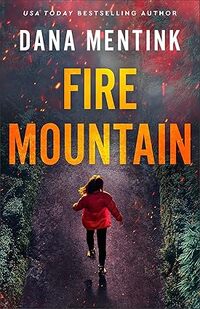


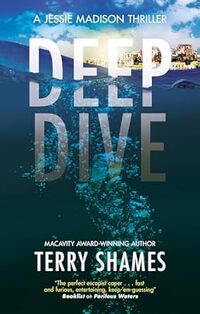

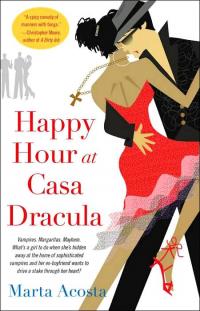

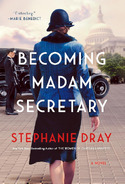
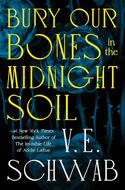



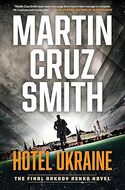

 © 2003-2025
© 2003-2025